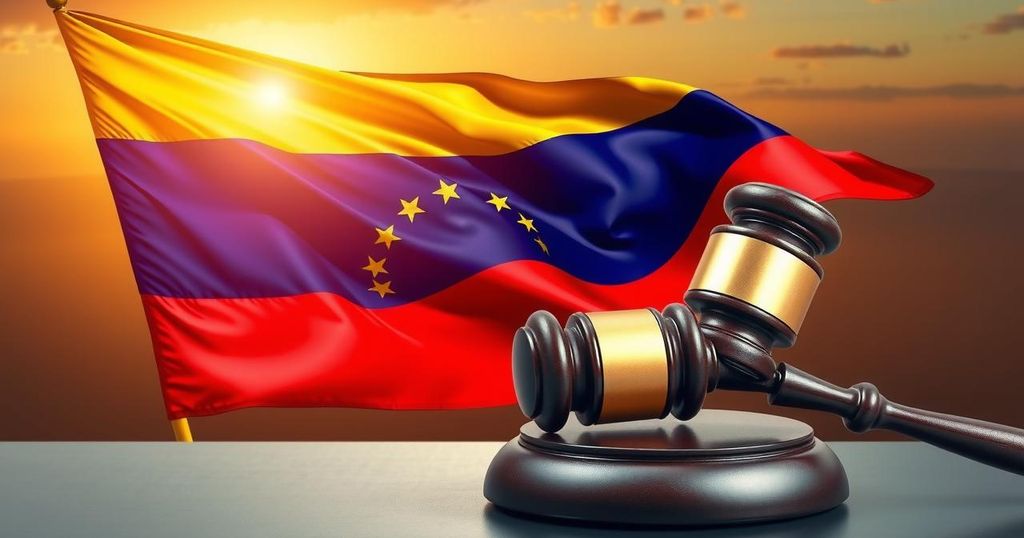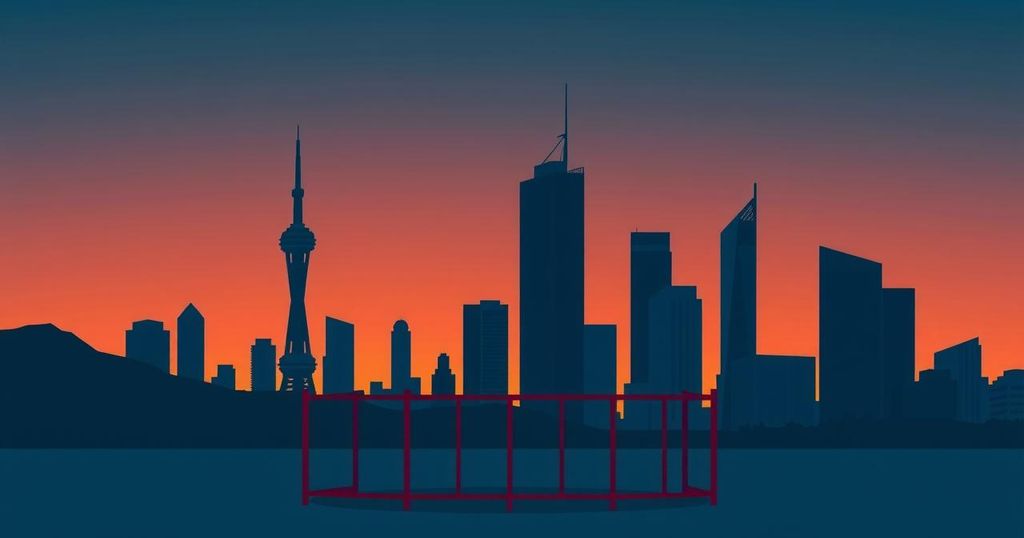Politics
” RUIZ - HERNANDEZ, BORDER SECURITY, CARLOS RUIZ - HERNANDEZ, COSTA RICA, HAROLD VILLEGAS - ROMAN, HAROLD VILLEGAS - ROMÁN, HUMAN RIGHTS, IMMIGRATION, MIGRATION, MIRAMAR, NORTH AMERICA, OF COSTA RICA, PANAMA, TRUMP, U. N. REFUGEE AGENCY, UNITED NATIONS, UNITED STATES, UNIVERSITY, UNIVERSITY OF COSTA RICA, WASHINGTON
Omar El-Sharif
Panama and Costa Rica’s Migration Crisis: Concerns Over Rights and Transparency
Costa Rica and Panama are tightening controls on migrants and deportees, including confiscating their documents and denying legal assistance. Critics argue the governments are failing to uphold human rights amid a reversal in migration flows, with many deportees wishing to seek asylum in the U.S. despite being subjected to harsh conditions in both countries. Human rights advocates are raising alarms over these actions.
Officials in Costa Rica and Panama are implementing severe restrictions on migrants, including the confiscation of their passports and cellphones, while denying access to legal services. These measures come as both nations attempt to manage a significant influx of deportees from the United States alongside a surge of migrants moving southward. Human rights advocates have condemned these practices, arguing that they compromise the safety and rights of the migrants involved.
Since the beginning of February, Panama alone has recorded over 2,200 migrants, many of whom were deported from the U.S. under policies from the previous administration. Officials like Harold Villegas-Román have expressed concerns that current policies prioritize control and security over human rights, creating a “murky” and opaque situation for migrants in these countries.
Panama’s Deputy Foreign Minister, Carlos Ruiz-Hernandez, reported that while the opportunities for asylum remain limited, authorities are facilitating the return of some migrants to their home countries. However, many of the deportees express a desire to reach the U.S. rather than settle in Panama, underscoring their precarious situation amidst limited support.
One detained individual recounted her experience of being sent to Panama without proper notification or legal counsel, lamenting the lack of opportunities to communicate with legal representation. As she described her situation, the absence of legal support has severely hindered the ability of deportees to understand their rights and procedures.
Panama’s President José Raúl Mulino has questioned the expectation for migrants to find legal resources in the country, suggesting that it is unlikely. Both nations are facing scrutiny for their lack of transparency in handling deportees, with human rights organizations demanding better access to communication and legal support for migrants.
In Costa Rica, similar criticisms have emerged regarding the treatment of deportees, who are also stripped of important documents and given vague directions about their futures. Activists warn that both Panama and Costa Rica risk becoming ‘black holes’ where migrants are isolated and deprived of basic rights during their ordeal.
Venezuelan nationals, such as Kimberlyn Pereira, illustrate the sentiments of despair among affected migrants, who have opted to abandon plans for asylum in the U.S. after facing insurmountable obstacles. As she described her uncertain situation in a detention facility, the lack of clarity provided by officials exacerbates feelings of anxiety and hopelessness.
Panamanian authorities have been seen actively restricting press access to migrant facilities, raising further questions about transparency and accountability. Following their attempts to contain media presence, some journalists were eventually able to interview migrants, revealing the chaotic environment they face.
Migrants like Pereira have made the difficult decision to continue their journey, opting to pay for transportation to continue towards Colombia against a backdrop of uncertainty and fear. The combination of government restrictions and dangerous travel conditions paints a troubling picture for those seeking refuge or a better life.
The situation for migrants in Panama and Costa Rica has evolved into a humanitarian concern, characterized by severe restrictions and lack of legal support. Authorities, while claiming to prioritize safety against human trafficking, have drawn criticism for their opaque and punitive measures. As deportees navigate this complicated terrain, their rights and access to legal recourse are increasingly endangered, prompting calls for greater transparency and accountability from officials.
Original Source: www.hindustantimes.com








Post Comment